Filter by:
Yad Vashem Publications
Entanglements of War: Social Networks during the Holocaust
Edited by: Eliyana R. Adler and Natalia Aleksiun
The Nazi persecution and murder of the Jews of Europe led to the atomization of the social relationships of the victims. Families were ripped apart. Entire communities were ghettoized and isolated from the outside world. The forced removal of the Jews from the midst of the non-Jewish population facilitated the crimes committed against them, significantly limited the assistance they could rely on, and restricted the number of witnesses to their persecution and murder. However, despite the devastation, disruption, and loss brought by the Holocaust, prewar patterns and lationships continued to shape decisions and actions by Jews and non-Jews both during and after the war. Even in extremis, they often relied on established networks of support that had been forged in very different circumstances. Jewish victims as well as bystanders and perpetrators relied on the already familiar cohort of relatives, neighbors, peers, and colleagues to support and assist them during this time. Just as these networks brought people with various backgrounds together, Entanglements of War compiles a broad range of interdisciplinary perspectives to reveal invaluable findings about the relationships, choices, and actions that shaped these complex connections, and their impact on Jewish lives during the Holocaust and its immediate aftermath.
IN SPITE OF IT ALL: Julius Paltiel - A Norwegian Jew in Auschwitz
Vera Komissar
A child’s cry pierces the stillness. The wail breaks the dismal silence that fell when the doors were locked. It’s as if the child’s tears give us all permission to let out our despair. Julius Paltiel grew up in Trondheim, Norway, where he lived with his mother and his brother. Like all the Jews of Norway, their lives changed forever when the Nazis came to power in April 1940. His arrest at the age of eighteen in 1942 marked the beginning of a journey of inconceivable horror and brutality in the Nazi concentration camps. Initially incarcerated in Falstad, a Nazi concentration camp in his native Norway, Julius Paltiel was then deported to Germany by sea in February 1943 before boarding a train to Auschwitz. He was selected for forced labor to work for IG Farben in Auschwitz III–Monowitz. In January 1945, he was sent on a death march to Buchenwald where he was liberated by U.S. forces on April 11, 1945. Julius Paltiel is one of the few Norwegian Jews who survived and returned from Auschwitz and one of the Jewish survivors who testified in the war crime trials against the Nazi perpetrators in Norway. He dedicated his life to the fight against antisemitism to ensure that such horrors would never happen again. As one of only a handful of Holocaust testimonies from Norway, In Spite of It All sheds light on Julius Paltiel’s personal ordeal to survive the Holocaust as well as on the Jewish persecution and murder of Norway’s Jewish community. This tale of survival also serves as a warning of the atrocities that are possible at the hands of ordinary human beings.
Diary From Hell in Transnistria 1942–1944
Lipman Kunstadt | Edited by Sarah Rosen and Dalia Ofer
I decided to stop writing the diary and to destroy the pages… I eventually overcame the despair and listened to the counterargument…a miracle may occur and your fragmentary writings will be the only remaining memory of Transnistria. (Lipman Kunstadt, August 26, 1942)
Diary from Hell in Transnistria is a painfully vivid and intricate account of life in the Dzhurin ghetto in Transnistria, written by Lipman Kunstadt, who was deported there from Radauţi, Romania, with his wife, his children, his mother, and his sister on October 14, 1941. Kunstadt, who was well-educated and a journalist, was appointed secretary of the Jewish council in the Dzhurin ghetto, where he had access to a great deal of information about its inner workings. He began writing his diary in Yiddish on April 11, 1942, at great risk, sparing no criticism against the ghetto leadership.
The Holocaust in Hungary, 4: "Possibilities and Limits of Testimonies": The Pusztavám Massacre - Jewish Survivors as Witnesses
Anikó Boros
Translated from the German by Christopher Reid
Jewish Solidarity: The Ideal and the Reality in the Turmoil of the Shoah
Edited by Dan Michman and Robert Rozett
The Holocaust unquestionably shattered most normative frameworks and cast the struggle for survival in its starkest form. Yet despite this, the Holocaust did not necessarily lead Jews to act as lone wolves, caring only about their own survival. This volume demonstrates that Jewish solidarity during the Holocaust is a multifaceted, multilayered issue, replete with complexities and shadings that reflect the diversity of Jewishness and Jewish existence, as well as the unprecedented dire situations that challenged it, and while solidarity was not a given and may not have predominated, it did not cease to exist.
Night Without End: The Fate of Jews in German-Occupied Poland
Edited by Jan Grabowski and Barbara Engelking
Years of Defiance: The Herbert Baum Group and Jewish Resistance in Berlin
Charlotte Holzer
Those Who Survived: The Resistance, Deportation, and Return of the Jews from Salonika in the 1940s
Rika Benveniste
The Cold Shower of a New Life: The Postwar Diaries of a Child Survivor, Volume 4 - July 10, 1946–October 21, 1946
Yehuda Bacon, Edited by Sharon Kangisser Cohen and Dorota Julia Nowak
These Thoughts of Mine: Diaries of an Italian Jewish Partisan, January 1940–February 1944
Emanuele Artom, Edited by Guri Schwarz
One Step Ahead: David J. Azrieli (Azrylewicz): Memoirs, 1939–1950
Danna J. Azrieli
Upon arriving at the kibbutz, after years of running and living in a constant state of fear and anxiety, I finally felt that I could unburden my heart and mind. I had dreamed of the day I would arrive, alive, in Eretz Israel. The constant stress of the last few years was made easier by my constant desire to achieve that goal. So, when I first arrived in the kibbutz dining hall, it was as if all my dreams had come true.
David J. Azrieli was born in 1922 in Maków Mazowiecki, Poland. Written by his daughter Danna, this gripping account of survival during World War II describes David’s extraordinary travels, always just one step ahead of life-threatening danger, which took him to the Soviet-occupied zones of Poland and later to Ukraine, Tashkent, and Buchara. He subsequently served in the Anders Army, before making his way from Baghdad to the frontiers of British-occupied Palestine.
The memoir chronicles David J. Azrieli’s arrival in Palestine, his studies at the Technion in Haifa, his experiences as a soldier in the War of Independence, and his realization that most of his immediate family had perished in the Holocaust. Azrieli finally settled in Canada in 1954. There he married his wife, Stephanie, and together they raised four children—Rafi, Sharon, Naomi, and Danna. This story of survival is all the more remarkable given Azrieli’s later achievements as a successful real estate developer and philanthropist. One of the economic giants of the Jewish world, his many developments changed the face of Israel and stand as a striking testament to the strength and courage of a boy whom Hitler could not defeat. The highlight of his activities is the establishment of the Canadian and Israeli Azrieli Foundations, which focus on improving the lives of present and future generations through education, research, healthcare, and arts.
Longing Overcomes Us: The Finkelsztejn Family’s Correspondence, New York–Warsaw, 1939–1941
Edited by Ewa Koźmińska-Frejlak
Diary from the Kovno Ghetto: August 1942-January 1943
Ilya Gerber, Edited by Lea Prais
Distrust, Animosity, and Solidarity: Jews and Non-Jews during the Holocaust in the USSR
Edited by Christoph Dieckmann and Arkadi Zeltser


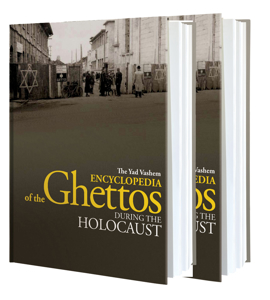


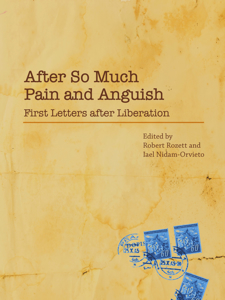

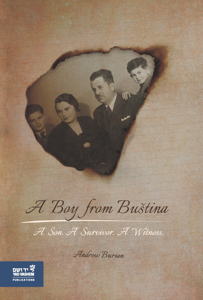
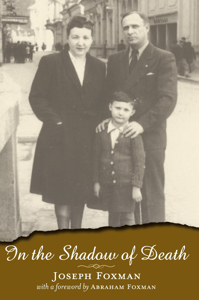
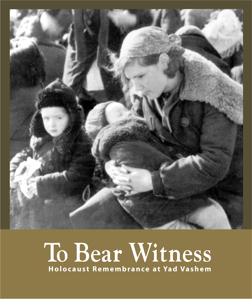
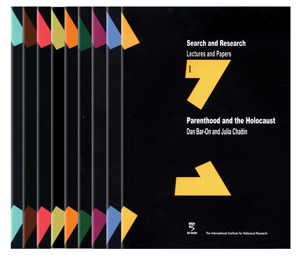

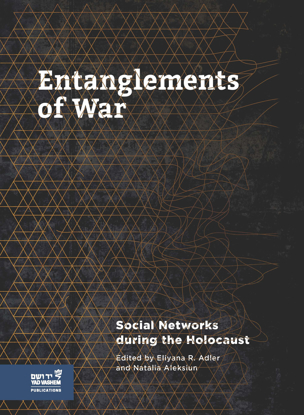
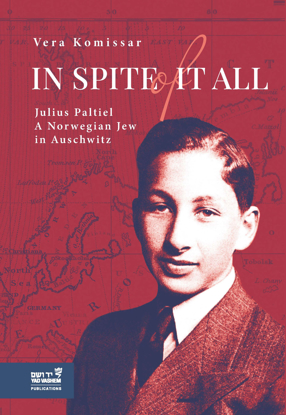
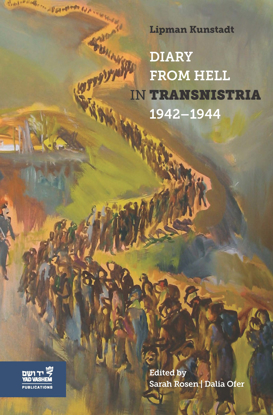
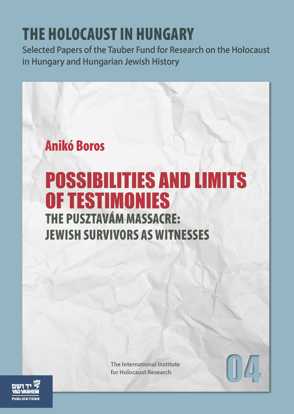
![Show details for Yad Vashem Studies: Volume 50 [2] Picture of Yad Vashem Studies: Volume 50 [2]](https://store.yadvashem.org/images/thumbs/0002253_yad-vashem-studies-volume-50-2_415.jpeg)
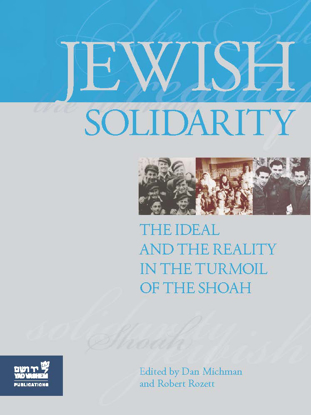
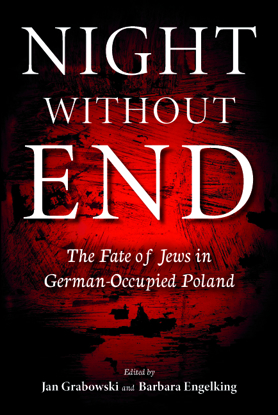
![Show details for Yad Vashem Studies: Volume 50 [1] Picture of Yad Vashem Studies: Volume 50 [1]](https://store.yadvashem.org/images/thumbs/0002221_yad-vashem-studies-volume-50-1_415.jpeg)
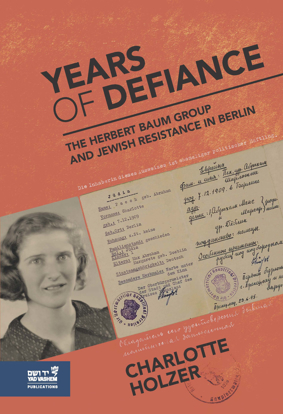
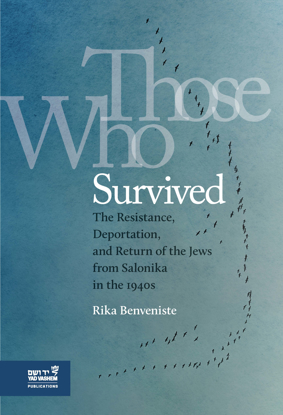
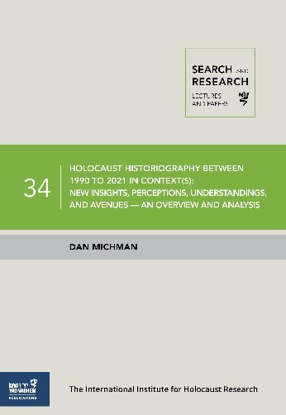
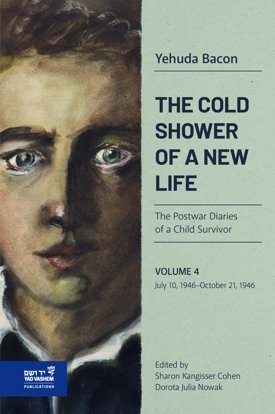
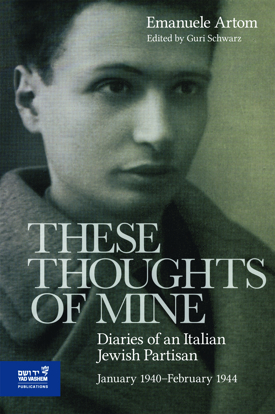
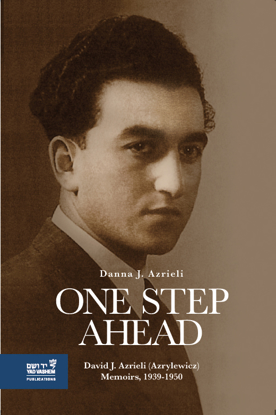
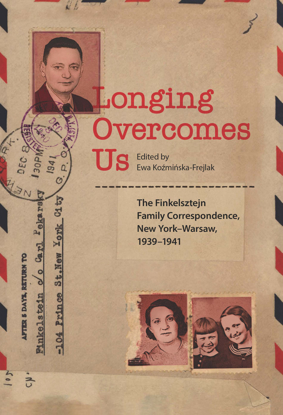
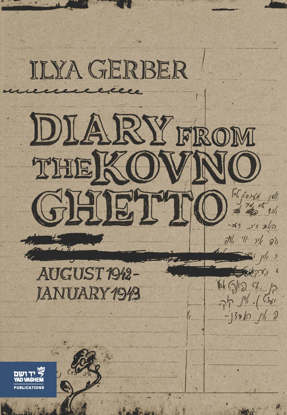

![Show details for Yad Vashem Studies: Volume 49 [2] Picture of Yad Vashem Studies: Volume 49 [2]](https://store.yadvashem.org/images/thumbs/0002184_yad-vashem-studies-volume-49-2_415.jpeg)